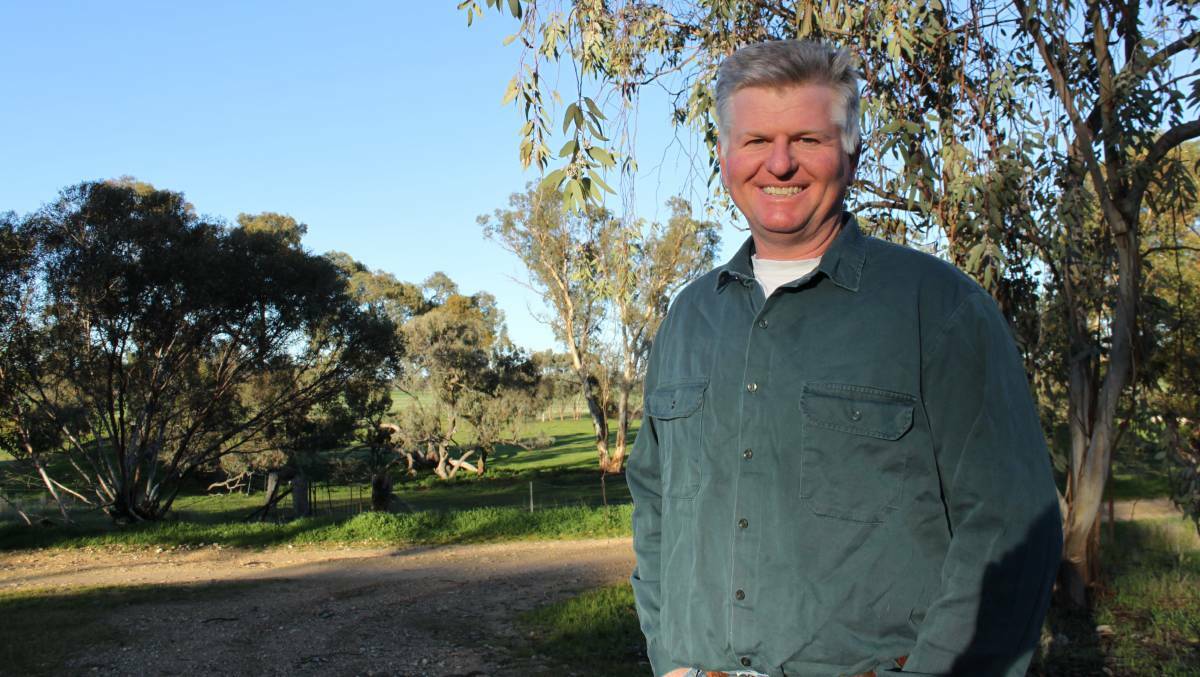
Kaniva farmer Steven Hobbs says the Victorian Government's commitment to becoming a leader in low-emissions agriculture through funding in the state budget is "admirable but aspirational".
Subscribe now for unlimited access.
$0/
(min cost $0)
or signup to continue reading
In the state budget reveal last week, the Victorian Government set aside $20 million over four years to accelerate Victoria's agriculture response to a changing climate.
The funding will aim to achieve this through accelerating research in emissions reducing technologies, delivering on-farm action plans to measure and reduce emissions, updating the Victorian Land Use Information System and developing an Agricultural Climate Spatial Tool.
Mr Hobbs, a member for Farmers for Climate Action, is yet to see any evidence of how the Government plans to achieve their goals and believes $20 million isn't as significant as it seems.
"There's really nothing, no hard-evidence or, there's no timetables, no objectives, to say how they'll go about achieving these aspirations," Mr Hobbs said.
"To me I would suggest that $20 million is not going to go very far, I mean there's a lot of emerging technologies for example, that can just burn up that 20 million dollars in a flash."
Mr Hobbs believes the funding could go towards something "more sensible and tangible when tackling emissions".
"It's a multi-pronged approach and they need to be looking at efficiencies and then reducing or avoiding the emissions, rather than creating them, because it's a lot easier to avoid an emission than to clean it up," he said.
"That's like a mess, it's easier not to mess up your room than clean it up.
"Personally I think that's where government is better off to start, with efficiencies and avoiding those emissions and education goes a long way to it too.
"Encouraging consumers to move away from fossil derived products back to more natural products like your timbers and your cellulose products and we should be going towards using biomass for generating electricity.
"So rather than councils bubbling up all their waste and putting it on the back of a truck and sending it to Dooen landfill, it should be separated into stuff that's combustible.
"That stuff can go back through a local incinerator that can produce heat, you know generate electricity or go into biochar.
"Biochar is a fantastic way for locking up carbon for a very long time."
Biochar is charcoal made from agricultural waste products which can be stored within soil to reduce carbon dioxide, as well as having other benefits.
"Number one it helps to provide a home for biology in the soil, so its got more of a friendly environment," Mr Hobbs said.
"Because biology is a bit like us, it wants to live in neutral PH conditions and when you've got high acidic fertilisers and products going on the soil it reduces the biology that's there and comes in contact with it, so it provides a good home, it buffers and it helps to filter toxins in the soil as well.
"It also holds, I think it's ten times its own weight in water and nutrients, so it's actually very good for acting as a medium for, like an underground mulch.
"That biochar once its put in there, it'll stay in that stabilised form for quite some time before it breaks down, so you can actually start to use our farms as a carbon sink, right so we can actually start to put carbon back in.
"We'll get a whole host of benefits from our farms and by having that nutrient water holding capacity, we're gonna hold more water in the landscape, because under a climate change scenario, we are going to be in for storms of a greater intensity, it's going to be a drying trend but it's going to be more extreme.
Mr Hobbs has experimented with biochar before and found some responses, however said the cost of freight was the biggest problem he faced.
"When you make biochar, a B-double load, instead of having 40 tonnes of whatever, it'll only take 20 tonnes of char, so really we need to be producing the char locally.
"And it's a really good way if you had a char plant or you put it in your community and people can bring in unwanted straw, old hay, prunings, lawn clippings,cardboard boxes."


